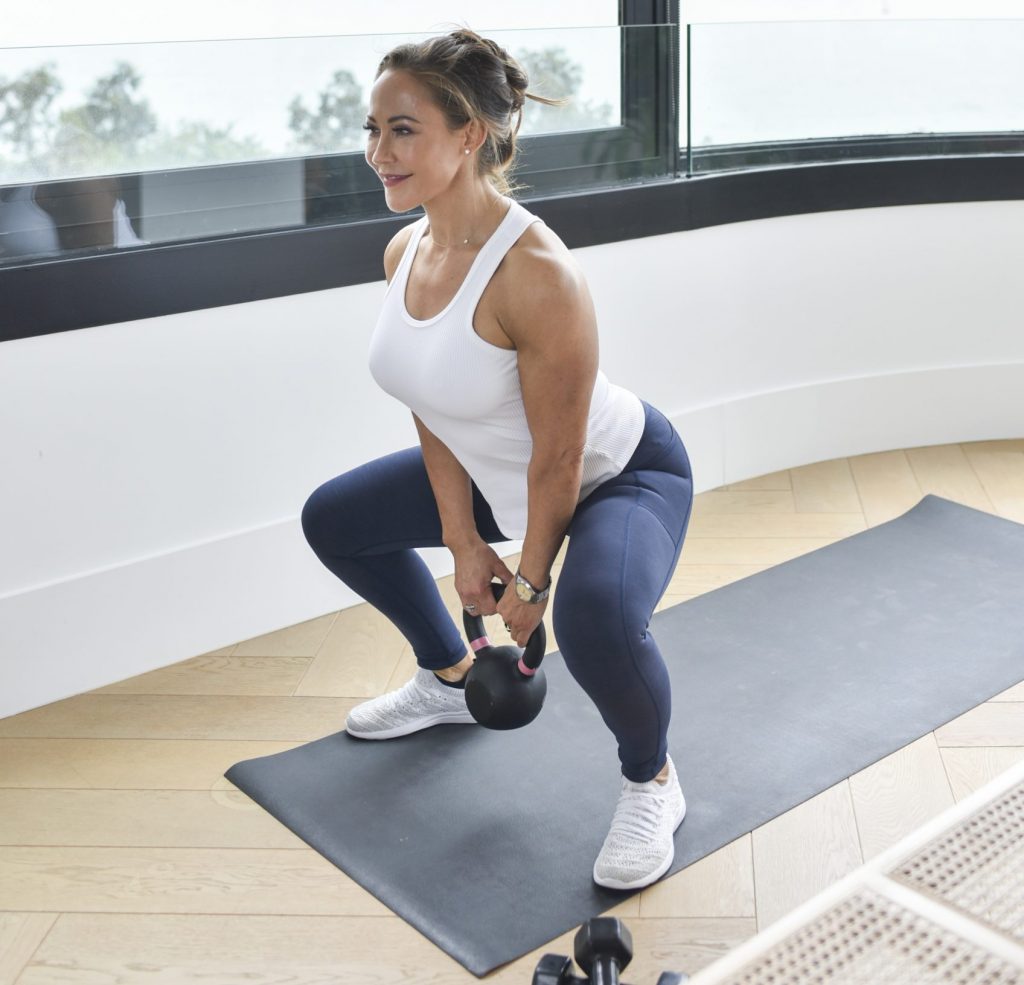Menopause is still considered a taboo topic in many cultures, even though all ladies will go through it eventually—so why the stigma? Knowledge is power and one can learn about the process at any stage in their life, plus it’s always good to prepare for the inevitable. For functional medicine health coach Beth Wright, menopause is all about thriving, not “surviving”, to manage long-term female hormone deficiency. We chat to Wright, who’s also the co-developer of Thrive Through Menopause, an upcoming programme created in collaboration with medical practitioner Dr Laurena Law, on how to thrive through this stage of life.

When should we expect to hit menopause?
The average age a woman’s hormones start to decrease is 45-55. It varies from woman to woman but one thing is certain—it affects every single one of us. For this reason, I am passionate about removing the stigma about the topic. I believe that women are entitled to access accurate information, advice and support through this stage of life.
From a medical perspective, menopause is considered retrospectively as 12 months since the last period. However, the lead-up to that point in time (referred to as perimenopause) and beyond (post-menopause) is when we can experience any number of symptoms. Perimenopause can start at any time in our 30s or 40s, although can be earlier or later, woman to woman.

What are the most common symptoms of perimenopause and menopause?
Unhelpfully, symptoms are wide and varied and often misdiagnosed, adding to a woman’s confusion about her body during this time. For some, the overall impact is minor and for others, symptoms can be debilitating. In parallel with physical changes, it is not unusual for strong, confident women to start to self-doubt and experience a loss in confidence, an increase in anxiety and an overall decline in mental health and wellness. I have coached many women who struggle so much that they take a step back from their career, often as a result of a drop in self-esteem as they question their capabilities.
Why is this happening to me?
For many women, menopause can be a confusing and unpleasant experience, not helped by a lack of constructive, shame-free conversation on the topic. In addition, confusion about menopause symptoms can lead to unnecessary prescriptions. In such cases, the cause of symptoms could be due to general physical and mental wellness concerns or cognitive decline or directly related to a change in sex hormones. It is important to work with someone who can help you understand the root cause. When misdiagnoses occur and the medication “isn’t working”, women are often left in a state of deep-seated worry and shame. I hope to help put an end to this unnecessary suffering.

Symptoms: what to expect
Women may experience some, none, or all of the symptoms below during menopause.
- Anxiety or low mood
- Mood swings
- Gaining weight especially around the mid-section
- Foggy thinking and forgetting things (often words)
- Skin changing texture
- Dry eyes and skin
- Histamine reactions
- Painful sex and dry vagina
- UTIs
- Migraines
- Itchy or dry eyes / scalp / skin
And the list goes on!
See also: Hong Kong Wellness Experts On Their Mental Health Tips For Lockdown

What are the health risks associated with long-term female hormone deficiency?
As if experiencing the symptoms were not bad enough, the research also supports the view that this drop in hormones can have not just an immediate impact but also long-term health implications. For example, did you know that women are twice as likely to experience depression within this age bracket?
Women who experience vasomotor symptoms (night sweats and hot flashes) are at a higher risk of developing cardiovascular disease and 70 per cent of women experience genitourinary syndrome (e.g. vaginal dryness, painful sex, cystitis) and yet only 25 per cent will volunteer this information to their doctor. This phase is shrouded in taboo, lack of information and (even worse) misinformation. This is why we have developed a programme that is research-led and seeks to smash through stigma and myths.
What can we do to thrive through menopause?
There is a lot that women can do to make this phase a better experience. First, knowledge is power. Once you have identified your symptoms you can implement lifestyle strategies that will support and improve this phase. In addition, you can work with your medical practitioner to talk about the different types of therapies available to you.

One of the reasons we created Thrive Through Menopause is because we were working with patients/clients who were experiencing peri-menopause symptoms but were getting no real support (from their doctors, families and work colleagues). Knowledge is scarce and there can be misdiagnosis in medication. These ranged from anti-depressants to gabapentin (to reduce hot flashes) to clonidine (for migraines), etc.
We wanted to provide information to dispel the taboo of menopause, to provide the women we support with knowledge that they can use to first understand what was happening, to improve their symptoms by making lifestyle changes and to realise that this does not need to be a negative phase of life. With the right information, you really can thrive.

The menopause course:
The course, set over six weeks provides weekly live (and recorded) modules covering:
- Menopause hormones: understand the physiology of menopause, what the signs and symptoms mean, and what is happening to your body
- Nutrition for menopause: learn nutrition strategies to avoid unwanted weight gain and maintain good energy levels
- Exercise for menopause: learn new ways to exercise that can specifically help women maintain (or build) muscle mass, improve bone density, boost serotonin levels and improve insulin sensitivity to maintain a healthy body weight
- Sleep and stress: learn strategies to improve sleep and manage stress and become more resilient
- Gut health and detoxification: discover the relationship between your gut, your hormones and your overall health. Learn how to detoxify safely and effectively to reset your system
- Doctors and therapies: learn how to speak to your doctor about treatment options and alternative therapies
The course is provided online which allows all participants the flexibility to watch (or rewatch) the module training sessions, access to both Beth and Dr Law and the opportunity for ongoing support and Q&A sessions.
